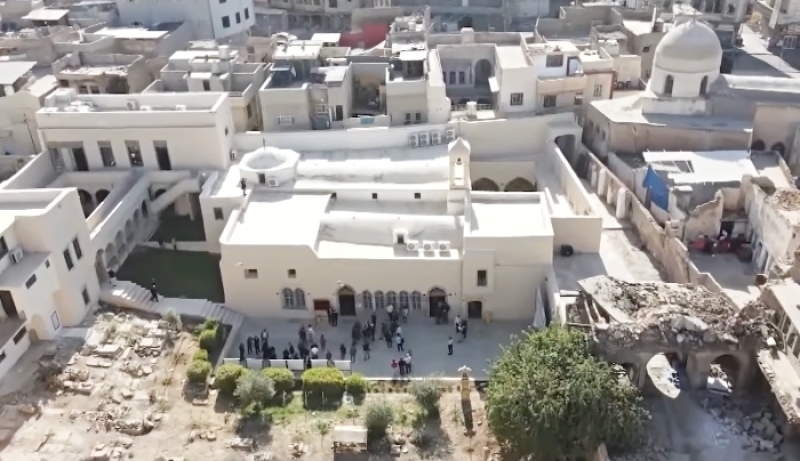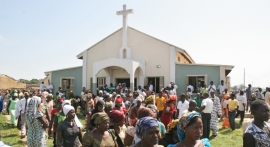
Two landmark churches in Mosul, Iraq, have officially reopened following years of reconstruction, marking an important milestone nearly ten years after their devastation under the Islamic State’s rule.
Local residents, clergy, and international officials gathered Wednesday to inaugurate the seventh-century Syriac Orthodox Church of Saint Thomas and the Chaldean Catholic Church of Al-Tahira, also known as “The Immaculate.”
Fadi, a 27-year-old Mosul Christian who spent three years training to assist with the restoration, told Vatican News the reopenings are “a sign of hope” for displaced believers.
“It shows the Christians living abroad that things are better here now, that they can move back home,” he said.
Both churches stand in Mosul’s Old City, where ISIS held sway from 2014 to 2017; during that time Saint Thomas was turned into a prison, while Al-Tahira was bombed and left in ruins.
Work to restore the sites began in 2022 as part of a broader effort to revive cultural heritage in post-conflict areas.
According to the Catholic outlet Zenit, Mosul’s Christian community—once about 14% of the population—has dwindled to fewer than 60 families in a city approaching 2 million people.
“These churches are not just stones. They are the memory of faith, history, and community,” said Archbishop Najeeb Michael Moussa, the Chaldean bishop of Mosul, after the ceremony.
He added that the project demonstrates how “faith can be wounded but not extinguished,” and that every bell peal “calls not only the faithful, but the future.”
Before rebuilding, teams first cleared mines and unexploded ordnance. Among the carefully restored elements is Saint Thomas’s 13th-century alabaster door—carved from local farsh marble and depicting Christ with the twelve apostles.
Newly cast bells from the Cornille Havard foundry in Normandy now ring across Mosul, bearing inscriptions such as “The truth will make you free” and “Peace I leave you, my peace I give you.”
The reconsecration of Mar Toma was conducted in an Orthodox rite, while Al-Tahira’s rededication followed on Thursday, presided over by Patriarch Louis Raphaël Sako, head of the Chaldean Church in Iraq.
Sako described the occasion as “not merely about restoring stones, but about restoring trust — a message of peace and hope for the people of Mosul and all Iraq.”
Addressing attendees, he urged “mutual trust and human, fraternal, and national relations,” cautioning that “extremism and sectarianism can never build a state or peace.”
In remarks directed at the Iran-backed Babylon Movement led by Rayan al-Kildani, he stated, “We Christians have no militias, and if such groups exist, they have nothing to do with Christian ethics, and we do not recognize them.”



















